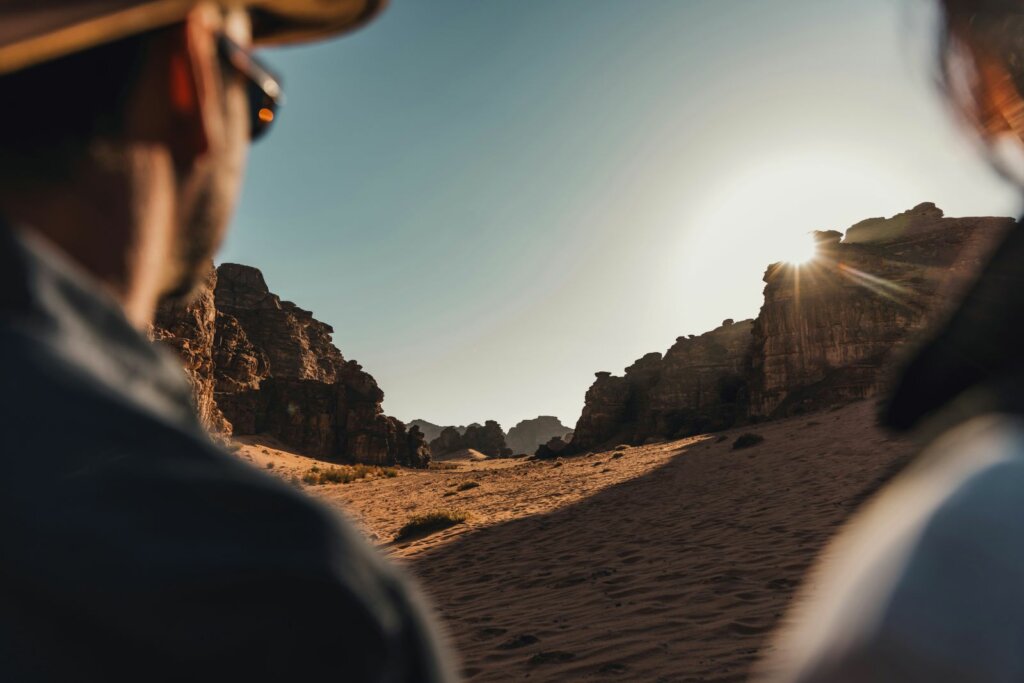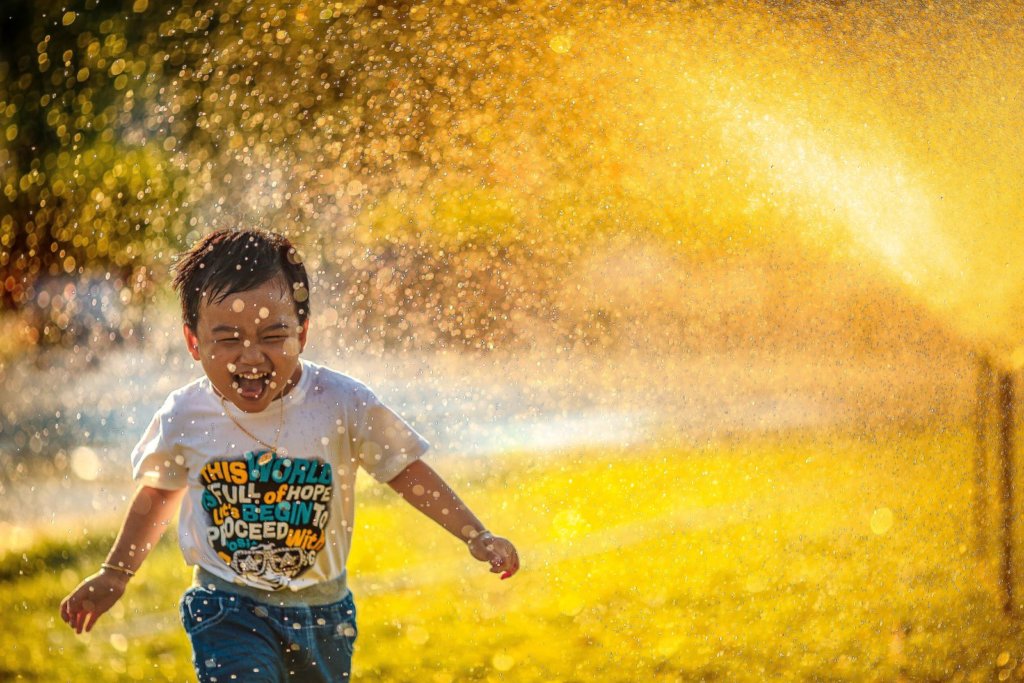I celebrated my 17th anniversary of moving to California on Valentine’s Day. I’ve been more emotional than I anticipated. Not so much that I moved here, that I still live here, but that I worked so very hard to create a life that I enjoy and works for me. I left a tearful voice memo for a friend saying for the first time in my life, nothing is actively wrong, personally. Politically on the other hand. . .
I’m happy. Not in a euphoric way that’s dependent on someone or something else but in a real, scientifically backed way. It’s something I made an effort around and that’s what’s choking me up. That’s also what my anniversary represents because it was the first major decision that I made to be happier. I’m still so grateful the 23-year-old me, scared of just about everything, said, “OK, I’ll move,” without having a job, a place to live, or an extensive community. It wasn’t an easy experience moving nine times in seven months, nor watching my bank account approach zero dollars and then hit it, but boy am I grateful I moved.
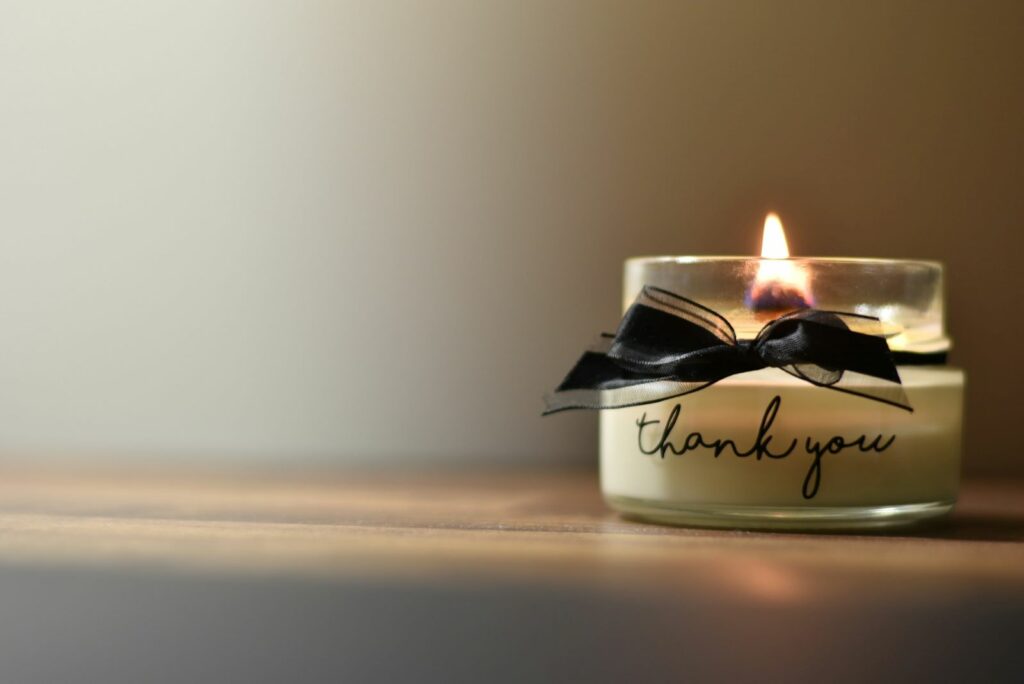
A little thanks goes a long way. Photo by Daniel Andrade on Unsplash
I’m so appreciative of that young woman who didn’t give up. For continuing to try even when it would have been easy to throw in the towel. I’m grateful to her for her courage, her openness, and her willingness to go outside her comfort zone. So much happened 17 years ago and the echoes still reach me today.
Why am I writing this publicly? After all, it could have been a journal entry, a private love letter to myself, but I’m making it public because especially in tough times I wonder if you’ve expressed gratitude for your past self. Have you said, “Thank you,” to the person in the mirror?
The most enduring, constant relationship you’ll ever have is the one with yourself. You are the only person who is with you from birth to death. Have you said, “I’m so proud of you”? Or given yourself a high five in the mirror?
Mel Robbins (no relation to Tony Robbins), is a motivational speaker and coach. She talks about high-fiving yourself in her book The High Five Habit. During a podcast episode with Marie Forleo she said, “You’re either going to have a really positive reaction where you’re going to laugh and you’re going to smile and it’s going to be funny and corny and all this stuff, or you will burst into tears in a very positive way. This is a very, very common thing that’s happening for people. And the tears are a positive release because you are realizing emotionally how much you’ve longed for this from yourself.”
Sometimes it’s easier to praise other people, to express our gratitude and appreciation for them, but what about you? Aren’t you just as deserving of praise, gratitude, and celebration? I bet there’s something, some version of yourself, some moment, some age that you reflect on with appreciation. What do you want to say to that past self? As for me, I’m saying, “Thank you.”
I dream of a world where we appreciate ourselves for how far we’ve come. A world where we say, “Thank you for doing that,” to the person in the mirror. A world where we remember we can thank and praise ourselves because we also deserve it.
Another world is not only possible, it’s probable.
A part of me believes that if only I had ____, I’d be happy. Or when ____ happens, then I’ll be happy. It’s one of the most pernicious lies that exists but I take comfort in knowing I’m not the only one who falls for it. There’s a reason we have about a billion books, podcasts, and courses on how to be happy – we humans don’t really know what will make us happy. We think we know but we don’t. Fortunately, there’s been a lot of research on the topic.
My favorite resource on happiness (so far) is Dr. Laurie Santos and her podcast “The Happiness Lab.” Dr. Santos is a happiness expert and taught THE most popular class at Yale in 300 years: Psychology and the Good Life. It’s been adapted into a free online course taken by more than 3.3 million people to date.
Dr. Santos has done a ton of research on happiness and discovered the way we go about achieving happiness is all wrong. We think happiness is about our circumstances – the job, the relationship, the house, etc., but in practice, science shows that’s not true. It’s not true because the brain gets used to anything – good and bad. For instance, when you buy a new iPhone, it’s fun for a while because it has cool new features, a better camera, etc., but then you just get used to it. It’s not the exciting, shiny thing it once was. It’s just your phone.

I feel happier looking at this kid. OMG so cute! Photo by frank mckenna on Unsplash
“We kind of get that with material objects, but we forget that with big life changes,” Dr. Santos says. “You get this new promotion, or you get a new salary, or you get into a relationship. At first, yeah, it’s amazing, but then over time, you just get used to it. And this is hedonic adaptation; all the best things in life, we kind of just get used to over time.”
Not only do we get used to the best things in life and forget how easily we acclimate, but we also have a built-in mechanism telling us we’d be happier with more. That’s what dopamine, the happiness molecule, seeks: more Instagram followers, more gadgets, more money, more. In my spiritual philosophy, we say every human being has a thirst for limitlessness. Even when a person has a lot, they still want more. Clay Cockrell is a wealth psychologist to the 0.0001% and found even those people are miserable because instead of being satisfied with enough, they’ll say, “I have $500 million, but I’m not a billionaire.” The millionaire wants to be a billionaire and a billionaire wants to be a trillionaire.
My spiritual teacher says:
“However great may be the wealth of attainment, it cannot satisfy the hunger of the human mind, which always yearns for unlimited happiness. Those who run after wealth and reputation, name and fame, can never be happy unless they can attain an infinite quantity of the same. But because the world itself is finite, how can the objects of this world be infinite? Besides, it is not materially possible to acquire objects of an unlimited quantity. So worldly achievement – even if it is the acquisition of the whole globe – is neither unlimited nor eternal.”
I’ll address the desire for infinity shortly but to go back to happiness research, Dr. Santos says to change your reference point so that you look down, not up. Instead of comparing yourself to someone who is better off than you, compare yourself to someone worse off. It could also be the “you” from a different time or circumstance. Comparing down elicits gratitude, which increases happiness.
Santos also says we’re terrible at prioritizing the things that make us happy. When we’re stressed with work, the first thing we drop is a yoga class with a friend, but socializing makes us happier. When we’re tired, we scroll Netflix, but we’d be better off playing on Duolingo, a language-learning app. It’s for that reason I have a 734-day streak on Duolingo. I’m committed to my happiness y’all. And if you want to follow me there, I’m @kfpixie.
The biggest thing I’ve learned from Dr. Santos, and that I have to remind myself of frequently, is happiness is a daily activity. There is no arrival or destination. You don’t publish a bestselling book and then feel happy forever. It’s the day-to-day behavior that affects our overall happiness. Part of that day-to-day behavior, which Santos addresses in a later episode, is a spiritual practice. When I meditate, I’m touching into something infinite and quenching that thirst for limitlessness. It’s the way I’m able to satisfy the part of me that endlessly craves more. At least sometimes.
Part of being happier, right now, also involves recognizing our moods change, our circumstances change, and it’s unrealistic to think we’ll feel Happy with a capital H all the time. But that doesn’t mean we can’t move the needle to happier. It just takes some effort.
I dream of a world where we remember happiness is a behavior, not a destination. A world where we understand the material world will never satisfy our desires because we’ll always crave more. A world where we point ourselves to something greater than us to satisfy that craving. A world where we do what we can to be happier now.
Another world is not only possible, it’s probable.
I recently took the University of Pennsylvania’s VIA Survey of Character Strengths in an effort to leverage my strengths and become happier. Marty Seligman, the father of positive psychology, said to be happier we can use our top strengths and apply them to something we don’t like. For instance, if you don’t like filing your taxes and your top strength is humor and play, you can gamify filing your taxes.
My top strength completely shocked me. When the result came in, I texted a friend and said, “Is this right? This doesn’t seem right.” My top strength? Bravery and valor. BRAVERY AND VALOR. UPenn defines this as, “You are a courageous person who does not shrink from threat, challenge, difficulty, or pain. You speak up for what is right even if there is opposition. You act on your convictions.” OK, well, when you put it like that, it’s true. And then the universe answered my question about whether that’s my top strength because independently, unprompted, someone told me over Facebook that I’m like a first responder always running toward the fire, that I don’t shy away from issues. Message received!
I don’t know how to apply bravery and valor to filing taxes but what I am applying this character strength toward is other things, namely my relationship to fear itself. Our society has a very combative relationship to fear. We say, “Screw fear! Don’t let fear stop you! If you’re scared, do it anyway!” We think of fear as a bad thing, something to push away or bulldoze over. I get it. Me too, but it’s not really working for me anymore. I find that instead of feeling less afraid, fear is taking over and I’m falling into a fugue state where I can’t concentrate on anything because there’s not anything to do. In other words, my fears are not around things like ice skating or public speaking. They’re abstract.
Telling myself all the reasons why I shouldn’t be afraid, also doesn’t help because I become irrational when I’m afraid. I thought about it and asked, “What would approaching this issue from my top strength of bravery and valor mean?” And you know what it means? Facing fear head-on without trying to fix, change, or solve it. I’ve been setting a timer for 15 minutes for the past few days and just letting fear flood my body. I’m not trying to soothe myself, push it away, or do anything. I’m letting it be. I’m saying to myself, “It makes sense that you feel afraid. It’s OK. I’m here. It’s safe for you to feel afraid.”
No one has ever said that to me in my life. It’s safe to feel afraid? I don’t have to run from this emotion just like I don’t run from anger and sadness? I’m finding that’s exactly what I need. Like I wrote about a month ago, change requires not only awareness and action but also acceptance. Before I can do anything about the fear, I need to feel it. I need to accept that it’s there, not minimize the emotion or declare all the reasons why it’s invalid. I can’t speak for everyone but for me, I perpetually want a container. I want a safe space to fall apart, to unravel. I want someone to witness me with love and neutrality. It’s one of the reasons I love therapy so much.
However, I only talk to my therapist once a week. What about the other 167 hours? I am the only person who is with me constantly so the best thing I can do is become a safe space for myself. It feels like the most terrifying thing I can do, let myself feel afraid, and yet doing so I feel more settled, more present, more adult because I’m not letting a scared inner child take over my body. I’m giving myself the space to feel my feelings like a good parent. In other words, I’m being brave. And wouldn’t you know it, I do feel happier.
I dream of a world where we stop trying to force ourselves to feel one way or another. A world where we create a safe container to feel all of our emotions. A world where instead of making fear an enemy, we recognize there’s a reason we feel scared. A world where we let ourselves feel afraid because we know it’s safe to do so.
Another world is not only possible, it’s probable.
P.S. If you take the strengths test, I’d love to hear your results.
Sometimes I put my happiness on layaway. I think about how amazing it will feel when I move somewhere big enough for a dedicated office space. When I have a house with a lush backyard illuminated with twinkling fairy lights. In the interim though, I’m in a one-bedroom apartment with no green space. Yes, I have plants in containers, but it’s not the same as a true backyard. Does that mean I’m doomed to be unhappy?
I’m currently reading the Artist’s Way and one of the exercises is to write out your ideal day. My ideal day includes, you guessed it, eating outside in a lush backyard illuminated with fairy lights. The author, Julia Cameron, asks, “What festive elements of your ideal day can you have right now?” Well, that certainly isn’t a question I ever asked myself.
I don’t have a backyard, but I do have a walkway that serves as a porch so on impulse, I purchased fairy lights to string along the railing and a camp chair to sit in. I’m still waiting for the fairy lights to arrive but tada! For less than $20 I gave myself something I’ve been dreaming of for years, or at least a small taste of it. I don’t have to earn more money to move to a bigger place, and then find the perfect place, and then live there. I can give myself what I want right here, right now.
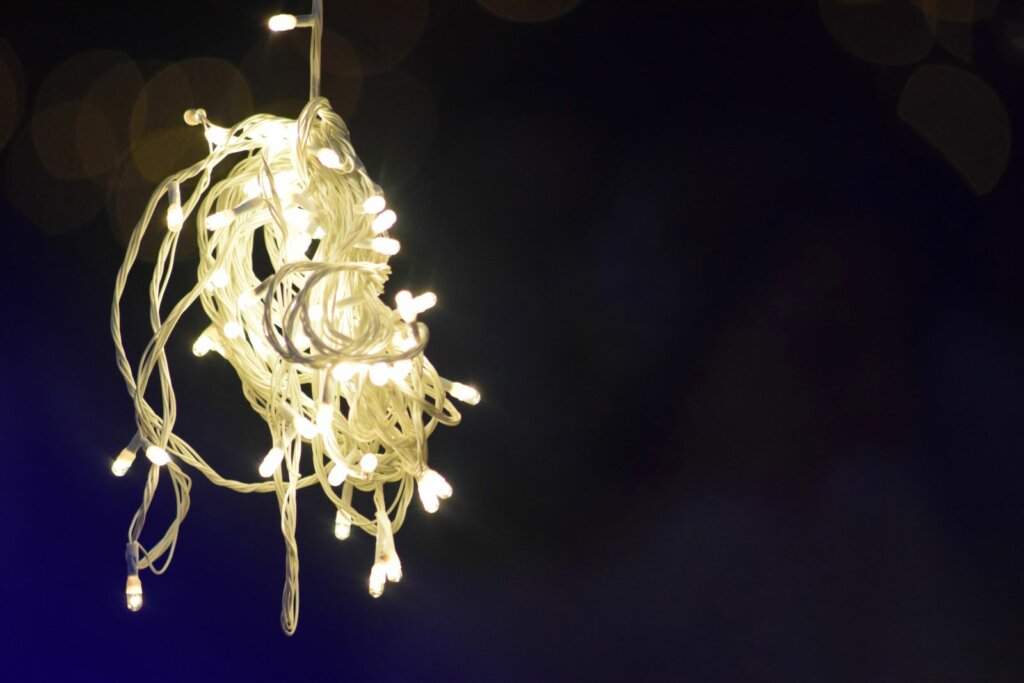
My happiness includes fairy lights. Photo by muhammad asif on Unsplash
It begs the question, “Why was I waiting?” I was waiting because I wanted things to be “perfect” first. I wanted my ideal and not the less-than-ideal, as if only the ideal could make me happy. But is that really true? Psychology professor Robert Emmons says:
Research on emotion shows that positive emotions wear off quickly. Our emotional systems like newness. They like novelty . . . . But gratitude makes us appreciate the value of something, and when we appreciate the value of something, we extract more benefits from it; we’re less likely to take it for granted.
In effect, I think gratitude allows us to participate more in life. We notice the positives more, and that magnifies the pleasures you get from life. Instead of adapting to goodness, we celebrate goodness.
In other words, I can be happier, right now, by celebrating goodness. By enjoying that I have a porch to sit on, that the fairy lights will twinkle in dusky light, and that a breeze ruffles my hair. I don’t need to wait to feel pleasure. I can feel content right here, right now. It reminds me of Mary Oliver’s famous poem “The Summer Day.” She writes:
Who made the world?
Who made the swan, and the black bear?
Who made the grasshopper?
This grasshopper, I mean—
the one who has flung herself out of the grass,
the one who is eating sugar out of my hand,
who is moving her jaws back and forth instead of up and down—
who is gazing around with her enormous and complicated eyes.
Now she lifts her pale forearms and thoroughly washes her face.
Now she snaps her wings open, and floats away.
I don’t know exactly what a prayer is.
I do know how to pay attention, how to fall down
into the grass, how to kneel down in the grass,
how to be idle and blessed, how to stroll through the fields,
which is what I have been doing all day.
Tell me, what else should I have done?
Doesn’t everything die at last, and too soon?
Tell me, what is it you plan to do
with your one wild and precious life?
As for me, I plan on creating my ideal life before everything is perfectly in place. I plan on giving myself the simple things I yearn for, sometimes for years, before it looks exactly how I think it should. Instead of adapting to goodness, I plan on celebrating goodness.
I dream of a world where we stop waiting to give ourselves the simple pleasures we long for. A world where we make our dreams come true before they are perfect, before they are ideal. A world where we recognize positive emotions wear off quickly but we can cultivate contentment right here, right now.
Another world is not only possible, it’s probable.
I had a very extreme week. I’m working on an article about a public housing project in San Francisco beset with problems. It has rats, squatters, mold, and more. And at the same time, I’m also working on an article about a dream home in Carmel that has two outdoor kitchens, a custom six-hole putting green, and nine fireplaces.
It would be easy to say the wealthy homeowners have a better life than the people living in public housing but life is never simple like that. When I visited the housing project, I witnessed a community coming together to support one another and look out for each other. It was filled with kindness and care. Things weren’t all bad or all good.
I didn’t visit the luxury home in Carmel, nor meet the homeowners, but as we know, money doesn’t inoculate you from problems. For instance, actor Michael J. Fox was diagnosed with Parkinson’s in his 20s. As a result of the disease, he’s broken his shoulder, elbow, hand, and even his face. He told Variety, “I have aides around me quite a bit of the time in case I fall, and that lack of privacy is hard to deal with. I lost family members, I lost my dog, I lost freedom, I lost health. I hesitate to use the term ‘depression,’ because I’m not qualified to diagnose myself, but all the signs were there.”
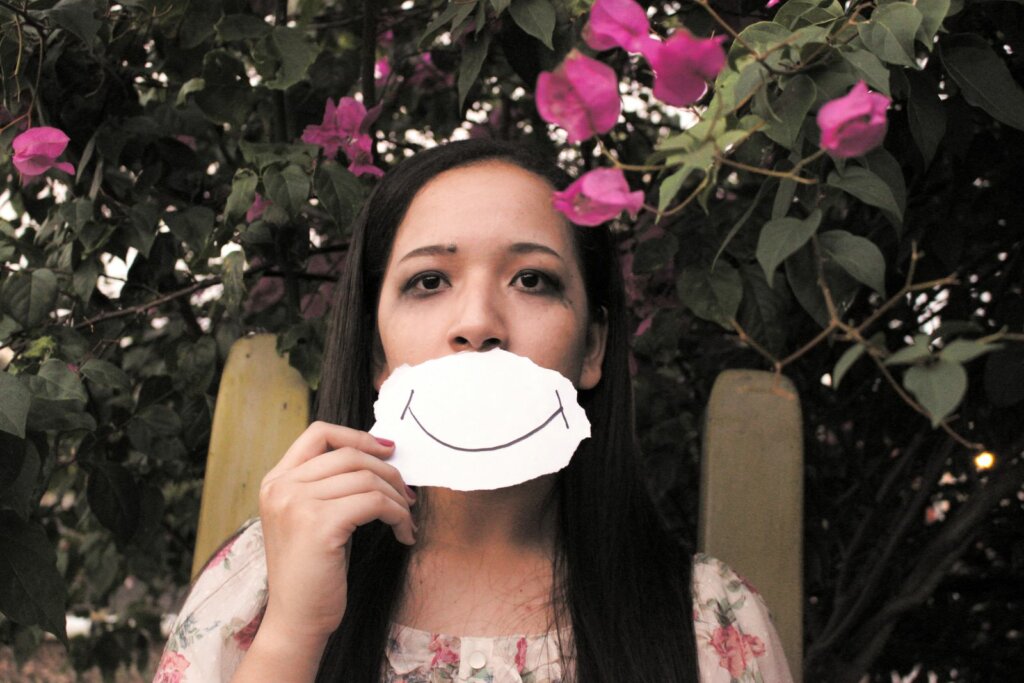
Sweetness and sorrow can be present at the same time. Photo by Ángel López on Unsplash
Money for sure makes some things easier but nobody gets an easy, breezy life. We all experience sweetness and we all experience sorrow. I think we all want more happiness but it’s interesting to me what we do to try to achieve it. Research shows us our brains are wrong about what we think will cause happiness. We think it’s money, career success, and material objects. But it’s not. Yet, despite the lie, why do we keep heading down that track? I’m not a neuroscientist but I can tell you from a spiritual perspective that there are two forces at work in the world, vidyá and avidyá.
They could be translated into good and evil but that’s not quite right. Really, they’re about the movement toward subtlety or crudeness. Avidyá seeks to drag the mind toward crude objects and bind us to the things of this world like cars, homes, and luxury goods. It has us believing that greed, selfishness, and narrowmindedness are the best way to operate in the world. Avidyá has us forgetting that nothing comes into this world forever.
Vidyá, on the other hand, is the opposite of all that. Through intuitional practices such as prayer and meditation, we come to understand that life is better when we are generous, when we care about others, and when we try to expand our minds beyond narrow sentiments. It’s the reminder that finite objects do not bestow us with the permanent happiness we seek and instead, that’s an inside job. Vidyá reminds us that only the Divine Beloved is eternal.
Going back to sorrow and sweetness, when I turn toward a Higher Power, I understand there can be sweetness amidst sorrow and sorrow amidst sweetness. I remember that neither is in my control, not really, and they’re passing fancies. What I want, what I really, really want, only God can give me.
I dream of a world where we remember there will always be sorrow and there will always be sweetness. A world where we understand neither state is permanent. A world where we recognize we always have a choice of moving toward subtlety or toward crudity. A world where we understand it’s only in subtlety that we’ll experience the bliss that we seek.
Another world is not only possible, it’s probable.
Whenever I share about my upcoming Australia trip, people are genuinely happy for me. I’m taken aback because sharing good news, especially over social media, seems perilous these days. A year or so ago, Glennon Doyle shared a video of her singing on a boat with her friends and family. The next day, she had the single-largest drop in followers her entire time on Instagram. She posited it’s because there’s something triggering about seeing women, especially, happy. That perhaps we’re more comfortable with their pain and suffering.
More recently in October, Daisey Miller shared a tweet that said, “my husband and i wake up every morning and bring our coffee out to our garden and sit and talk for hours. every morning. it never gets old & we never run out of things to talk [about]. love him so much.” Some responses were positive but many were scathing and called her out for being privileged and presumably wealthy. There was an assumption Miller didn’t work and had minimal responsibilities.
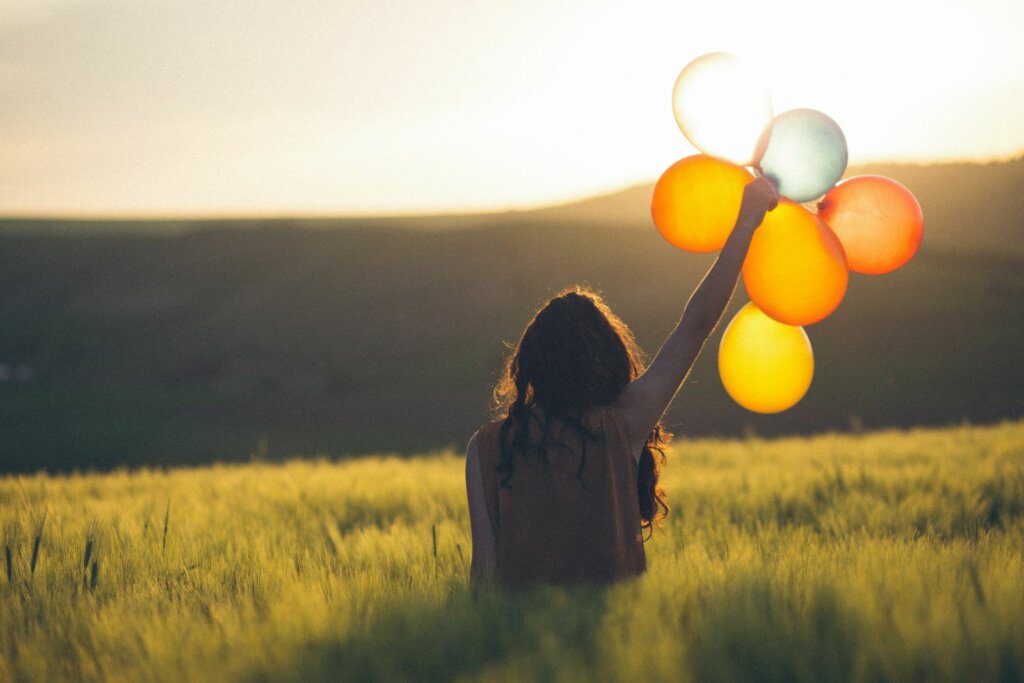
Happiness increases when it’s shared. Photo by Catalin Pop on Unsplash
In other words, instead of celebrating Miller’s quality time with her husband, people tore her down and mocked her. Numerous people tweeted their own versions: “my husband and i wake up every morning and go out to our garden and swordfight for hours. every morning. it never gets old & we never run out of ways to duel and spar. love him so much,” or “my husband and i wake up every morning and go out to our garden and we kill each other with our bare hands because we are miserable and we both have crabs.”
Those that didn’t mock her showcased self-righteousness, which is the conviction that one’s beliefs and behaviors are the most correct. As John Mark Green puts it, “The self-righteous scream judgments against others to hide the noise of skeletons dancing in their own closets.” Twitter is rife with self-righteousness and a hotbed of schadenfreude, a compound of the German words schaden, harm, and freude, joy. It means deriving pleasure or joy from someone else’s suffering or misfortune.
Brené Brown writes in her book Atlas of the Heart that schadenfreude is “seductive. Especially when we’re sucked into groupthink. It’s easy to build counterfeit connection with collective schadenfreude. I say ‘counterfeit’ because when we see someone who we don’t like, we disagree with, or is outside our group stumble, fall, or fail, it’s tempting to celebrate that suffering together and to stir up collective emotion.”
I mean, I get it. I’ve felt schadenfreude from time to time. But that doesn’t mean schadenfreude has to dominate your life. The antidote to schadenfreude is freudenfreude, a word made up by an American psychologist that literally translates as “joy joy.” It’s letting yourself feel vicarious joy for others. When we share our joy, our joy increases. The Buddha stated this well when he said, “Thousands of candles can be lighted from a single candle. Happiness never decreases by being shared.”
I have to remind myself of that because I worry by sharing my good news people will judge me, one-up me, or try to tear me down. Thus far they haven’t, probably because I’m not famous and I don’t surround myself with jerks. It could also be that I engage in freudenfreude regularly. I really and truly celebrate when others celebrate. Seeing their joy brings me joy and perhaps that’s why it’s coming back to me. Together, we are multiplying happiness.
I dream of a world where we celebrate each other’s wins. A world where we practice freudenfreude more than its opposite. A world where we remember happiness doesn’t decrease when it’s shared, instead it’s multiplied.
Another world is not only possible, it’s probable.
The other week I started a slow slide into depression because I ran out of resveratrol, a supplement I take to support dopamine production. In a quest to feel happier, I descended into an internet rabbit hole and of course a podcast from Glennon Doyle about how to live a little happier caught my eye, particularly because she featured Dr. Laurie Santos. Dr. Santos is a happiness expert and teaches THE most popular class at Yale in 300 years: Psychology and the Good Life. It’s been adapted into a free online course taken by more than 3.3 million people to date.
Dr. Santos has done a ton of research on happiness and discovered the way we go about achieving happiness is all wrong. We think happiness is about our circumstances – the job, the relationship, the house, etc., but in practice, science shows that’s not true. It’s not true because the brain gets used to anything – good and bad. For instance, when you buy a new iPhone, it’s fun for a while because it has cool new features, a better camera, etc., but then you just get used to it. It’s not the exciting, shiny thing it once was. It’s just your phone.
“We kind of get that with material objects, but we forget that with big life changes,” Dr. Santos said during the podcast. “You get this new promotion, or you get a new salary, or you get into a relationship. At first, yeah, it’s amazing, but then over time, you just get used to it. And this is hedonic adaptation; all the best things in life, we kind of just get used to over time.”
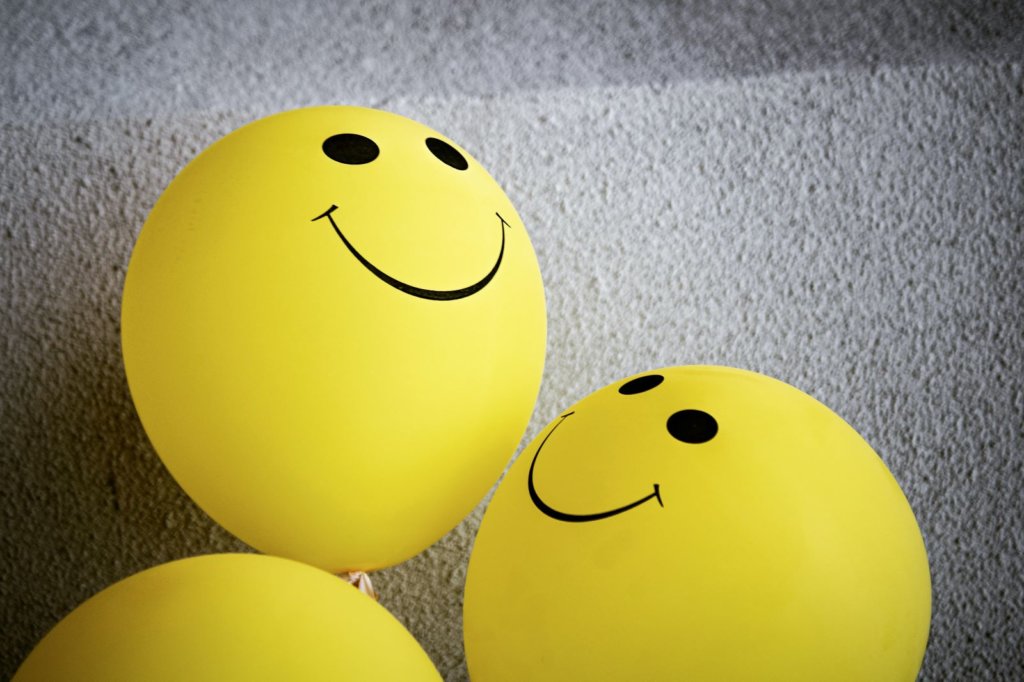
We can be happier. Photo by Tim Mossholder on Unsplash
Not only do we get used to the best things in life, not only do we forget how easily we acclimate, we also have a built-in mechanism telling us we’d be happier with more. That’s what dopamine, the happiness molecule, seeks. More Instagram followers, more gadgets, more money, more. In my spiritual philosophy, we say every human being has a thirst for limitlessness. Even when a person has so much, they still want more. Clay Cockrell is a wealth psychologist to the 0.0001% and found they are miserable because instead of being satisfied with enough, they’ll say, “I have $500 million, but I’m not a billionaire.” The millionaire wants to be a billionaire and a billionaire wants to be a trillionaire.
My spiritual teacher says:
“However great may be the wealth of attainment, it cannot satisfy the hunger of the human mind, which always yearns for unlimited happiness. Those who run after wealth and reputation, name and fame, can never be happy unless they can attain an infinite quantity of the same. But because the world itself is finite, how can the objects of this world be infinite? Besides, it is not materially possible to acquire objects of an unlimited quantity. So worldly achievement – even if it is the acquisition of the whole globe – is neither unlimited nor eternal.”
What then is the solution? How can you be happier right now and placate dopamine? First off, Dr. Laurie Santos says to change your reference point so that you look down, not up. Instead of comparing yourself to someone who is better off than you, compare yourself to someone who is worse off. That also elicits gratitude, which increases happiness.
Santos also says we’re terrible at prioritizing the things that make us happy. When we’re stressed with work, the first thing we drop is a yoga class with a friend, but socializing makes us happier. When we’re tired, we scroll Netflix, but we’d be better off playing on Duolingo, a language-learning app. Furthermore, happiness is a daily activity, not an arrival, which means you can’t write a gratitude list once a year and feel happier until the end of time. How we operate on a day-to-day basis affects our happiness overall.
Dr. Santos has more happiness tips and research on her podcast, the Happiness Lab. However, something happiness experts often miss is in order to feel truly happy and at peace, you must include some sort of practice that quenches your thirst for limitlessness. For me, that means meditating on an infinite, loving consciousness. And wouldn’t you know it, I’m happier when I do.
I dream of a world where we realize happiness is a daily activity, not a place we arrive. A world where we understand the material world will never satisfy our desires. A world where we point ourselves to something greater than us. A world where we do what we can to be happier now.
Another world is not only possible, it’s probable.
Have you heard the expression, “Expectations are premeditated resentments?” I wouldn’t say that’s wholly true for me because my expectations aren’t about other people, but they have certainly been premeditated disappointments. For instance, I woke up on the morning of my most recent birthday and cried because I’m not at all where I thought I’d be at this age. Yes, the big things like married, but also I thought by this age I’d be living in a more spacious apartment and have signed a literary agent. But I haven’t.
Every year I inflict this kind of disappointment on myself. I make a goal where I say, “By this time next year I’ll ______.” And then inevitably what I set out to achieve doesn’t come to pass because I’m not in control of every aspect of my life. If we’re using the theater metaphor that all the world’s a stage and we’re merely players upon it, I’m instead operating under the assumption I’m the director. As the director, I have a say in what happens upon the stage, but as much as I’d like to be the director, I was cast as an actor. And that means it doesn’t make sense to have expectations for how my future will unfold.
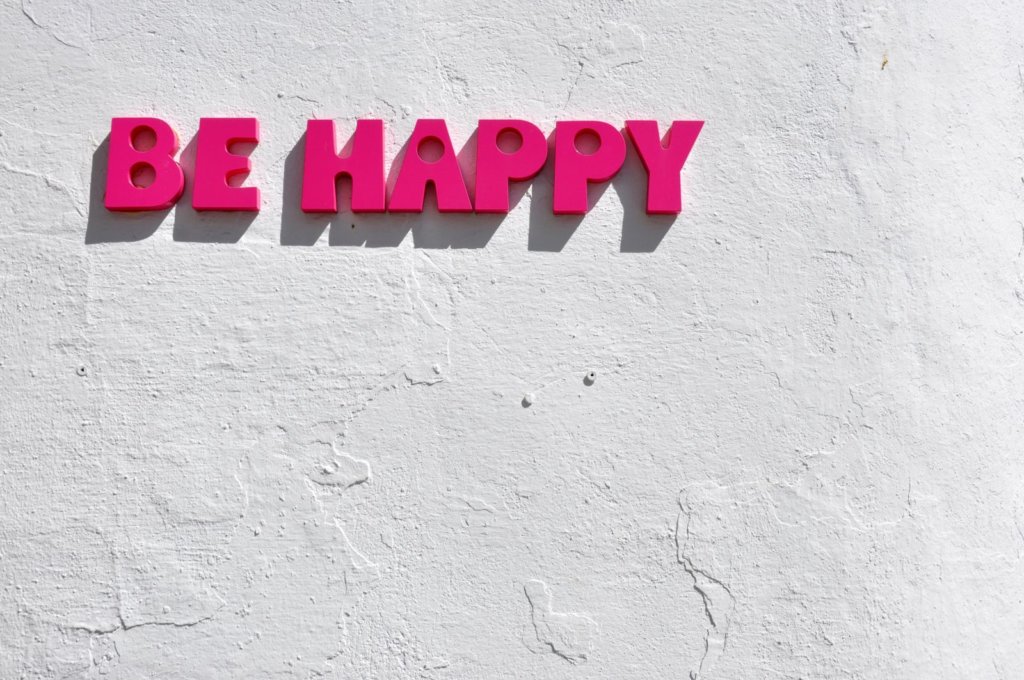
I would like to follow this command. Photo by Alex Block on Unsplash
Having a goal is great, but setting a timeline is not. How can I possibly predict what will happen in the future? I can’t. That’s also the chief complaint of every crowd-funded campaign I’ve ever backed. The creator sets up a timeline and says, “You’ll receive your water pitcher in six months,” or whatever and when that time comes and goes, people get angry and impatient. The timing is almost always off because the creator ran into unforeseen circumstances. It’s the same for me — I’m forever running into unforeseen circumstances.
What if instead of giving goals a deadline, I work toward them and just let my life unfold? What if instead I accepted and enjoyed what’s here, now? Jodi Picoult speaks to this in her novel Nineteen Minutes when she writes, “There were two ways to be happy: improve your reality, or lower your expectations.”
I already work incredibly hard to improve my reality so maybe now is the time to lower my expectations, or better yet, not have any at all. What’s funny is when I googled how to do that, much of the search results focused on lowering expectations in regards to other people and not much about lowering the expectations a person has for themselves. I suspect that because in the U.S. anyway, we have high expectations for ourselves. We believe if we dream it, we can achieve it and on our timeline to boot. You just have to think positively! Create a vision board! Hire a life coach! That all has a place, but so does something every spiritual teacher talks about: surrender.
My spiritual teacher says, “Human beings and other created beings perform a multitude of actions. The ultimate action, however, is … total surrender.” Total surrender means aligning my will with higher power’s will. Total surrender means recognizing I am an actor in this world, not the director. Total surrender means no longer placing expectations upon myself for when something will be accomplished because that only sets me up for disappointment and this year my goal instead is to be happy.
I dream of a world where we remember the recipe for happiness is to improve our reality or lower our expectations. A world where we remember we are the actors upon the stage of life and not the directors. A world where we understand in order to truly feel happy, we have to let go and enjoy what arises when it arises.
Another world is not only possible, it’s probable.
I keep thinking about the notion that my higher power wants me to be happy, joyous, and free. Due to the trauma in my background, it’s a heck of a lot easier to think God wants me to be sad, miserable, and suffering. That’s what happens with trauma – it rewires your brain and changes your perspective as a form of protection. It also certainly doesn’t help that I live in a Christian-dominant society, meaning, the idea I’ll be sent to hell for doing something wrong, is prevalent. And the thing about culture is we can’t escape it – it’s the air we breathe.
All of this is to say it’s easier for me to believe terrible things will happen in my life, to brace myself for the worst possible outcome. But is that really true? Isn’t it just as likely the best possible outcome could occur? And haven’t I seen evidence over and over again that things work out? Maybe not right away, but eventually? And if I’m wrong and things are actually terrible, which perspective makes me feel better: the optimistic one or the pessimistic one?
This isn’t a post about the benefit of optimism but rather joy itself. My spiritual philosophy emphasizes this over and over again, how we are all running after happiness. Not only human beings, but all beings. For instance, cats constantly seek warm, comfortable spots so they can curl up and sleep. We are all seeking joy.
The ancient Hindu scriptures, the Vedas, say, “This quinquelemental world has been born out of joy, is being maintained in joy, and into sacred joy will melt.” Wow. Let that statement sink in: The world was born out of joy, is being maintained in joy, and into sacred joy will melt. Instead of being a cold, cruel place, the world can be a beautiful, joyful one.
While typing this, a moth landed on my window and watching it I started thinking about the saying, “like moths to a flame.” It reminded me there’s a natural attraction in this world, that we are all drawn to something whether we’re conscious of it or not. That we’re pulled toward joy and maybe it doesn’t have to feel so difficult. Dancing brings joy. Singing brings joy. Looking at pictures of cute kids and baby animals brings joy. But so do things like serving others and meditating.
I’d like to end with a poem by Hafiz because I think it’s appropriate. It’s called “Tripping Over Joy”:
What is the difference
Between your experience of Existence
And that of a saint?
The saint knows
That the spiritual path
Is a sublime chess game with God
And that the Beloved
Has just made such a Fantastic Move
That the saint is now continually
Tripping over Joy
And bursting out in Laughter
And saying, “I Surrender!”
Whereas, my dear,
I am afraid you still think
You have a thousand serious moves.
I dream of a world where we are happy, joyous, and free. A world where we realize we are born out of joy and unto joy we shall return. A world where we remember there’s a force in the world that’s drawing us to it like a moth to a flame. A world where we realize that force is love and the process can be a joyful one.
Another world is not only possible, it’s probable.
First off, I want to make a distinction between happiness and joy. According to Brené Brown, happiness is tied to circumstance and joyfulness is tied to spirit and gratitude. Even the Greek origins of the word demonstrate that concept. The Greek word for happiness, Makarios, was used to describe the freedom of the rich from normal cares and worries, or to describe a person who received some form of good fortune such as money or health. The Greek word for joy is chairo, which was described as the “culmination of being,” and the “good mood of the soul.”
I’ll admit I’ve been chasing happiness. When I was younger I thought being thin would “make” me happy and later I thought having a boyfriend would “make” me happy. For the past few years it’s been about having the perfect home space. I’ve been chasing a feeling, trying to recreate an experience from my past, believing if I just moved somewhere else then I’d be happy.

“Happiness runs in a circular motion, life is like a little boat upon the sea. . .”
On Friday, I asked myself, “Rebekah, do you really need to be happy where you live?” The answer is, “No.” I realized sometimes my needs and my happiness converge and sometimes they do not. Right now my home meets my needs – it’s quiet, I live alone, I can afford my rent, and I’m surrounded by nature. But am I happy? No. And that’s OK.
To me, being an adult means understanding I won’t always be happy and much like I wrote about in my post “Self-Will and the Magic Pill,” there’s no magic pill or formula or circumstance that will invoke happiness within me. I’m choosing to see happiness as something I stumble upon, something that is bestowed upon me, and not something I can seek.
What I can seek, what I can cultivate, is joy. Joy comes from gratitude and appreciation, from counting my blessings, from connecting with others, and choosing to see the good in my life.
I guess what I’m saying is right now I’m finding getting my needs met are more important than being happy. I’m letting myself off the hook in terms of searching for happiness because in the last two years especially, I find it’s a never-ending quest. How can I chase a feeling? How can I possibly know what elements are required to create happiness? I thought living in this cottage in Oakland would make me happy, and it hasn’t. But instead of trying to do something about it, I’m letting myself be.
Many people find themselves unhappy – they thought the great job, nice car, beautiful house, loving partner, or whatever, would make them happy and it did – temporarily, but then it wore off because happiness is not permanent. Happiness is something that happens. But joy? Joy is an inside job.
I dream of a world where we realize we don’t have to be happy. A world where we no longer seek good fortune but let good fortune come to us. A world where we practice being joyful through gratitude and appreciation. A world where we understand sometimes it’s more important to get our needs met than it is to be happy.
Another world is not only possible, it’s probable.
